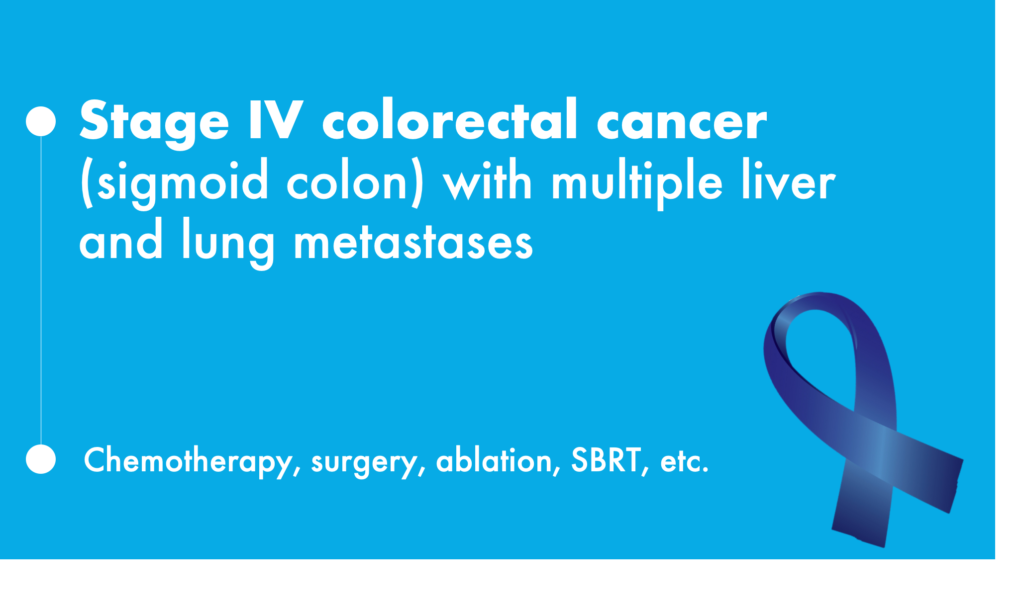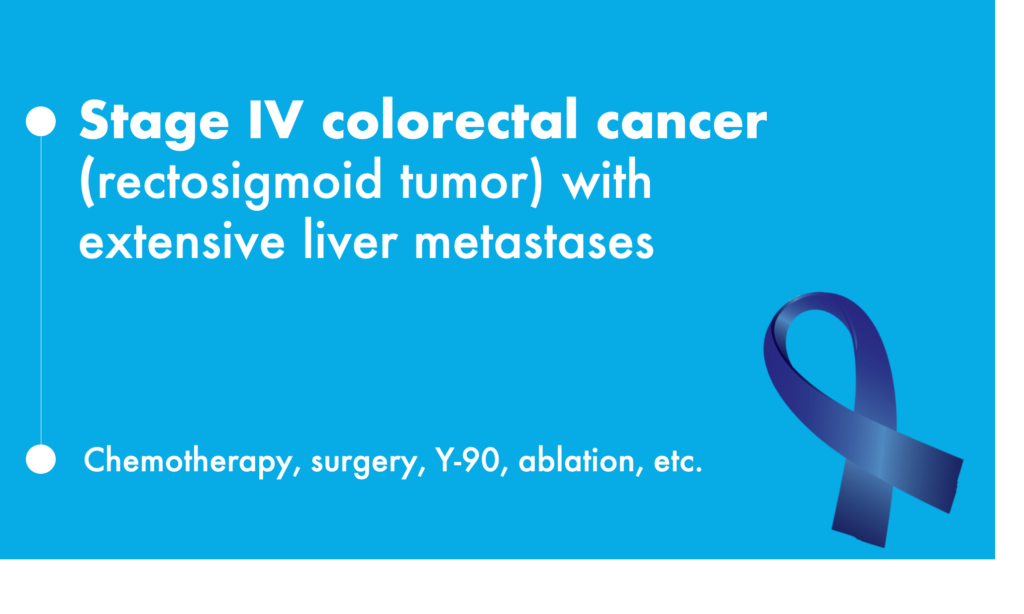Journey of Resilience
A Decade of Triumph: A Journey Overcoming Advanced Colon Cancer
From Diagnosis to a Decade of Disease-Free Survival with Innovative Treatment
In his late sixties, a 68-year-old man, with no significant prior health conditions, visited his doctor after experiencing abdominal pain and anemia. A series of diagnostic tests, including a colonoscopy and biopsy, revealed a poorly differentiated carcinoma in the ascending colon. Shortly after, he was hospitalized with fever and abdominal tenderness, leading to an urgent right hemicolectomy. The surgery confirmed a stage pT3N0M0 colon cancer with lymphovascular invasion but no lymph node involvement.
Following his diagnosis, the patient began systemic chemotherapy with the FOLFOX regimen. However, after six cycles, imaging revealed a local recurrence and pericolic lymphadenopathy, indicating disease progression. Genetic testing (NGS) identified a BRAF V600E mutation, guiding the next phase of treatment.
To target the genetic mutation, he switched to FOLFIRI combined with cetuximab. Unfortunately, after two cycles, imaging showed further progression. As a result, he enrolled in a Phase I clinical trial testing a novel combination of vemurafenib, cetuximab, and irinotecan. Within two months, scans revealed a near-complete resolution of the recurrent disease and lymphadenopathy.
Despite remarkable progress, complications arose. A bowel obstruction led to surgery, where no active cancer cells were found, only necrotic and fibrotic tissue. This was a promising sign that the treatment had effectively eliminated the tumor. After recovering, he resumed therapy with a modified dosage to manage side effects like diarrhea. Over time, irinotecan was discontinued, followed by cetuximab 60 months later.
The patient remained on vemurafenib for 89 months as part of the clinical trial before transitioning to standard care. Today, 120 months after initiating targeted therapy, he continues to be disease-free, demonstrating the power of precision medicine and perseverance.
Diagnosis
Stage pT3N0M0 colon cancer
Biomarker profile: BRAF V600E mutation, MSI-H phenotype
Treatment
Right hemicolectomy, FOLFOX chemotherapy, followed by FOLFIRI-cetuximab, and participation in a clinical trial with vemurafenib, cetuximab, and irinotecan.
Outcome
No evidence of disease 10 years post-treatment, highlighting the impact of genetic-driven therapy and clinical trial advancements
Source: Fox, D. A., Bhamidipati, D., Kopetz, S., & Hong, D. S. (2025). Durable Remission After Targeted Therapy in BRAF V600E–Mutant Metastatic Colorectal Cancer: Case Report. Journal of Immunotherapy and Precision Oncology, 8(1), 11-14.
.


